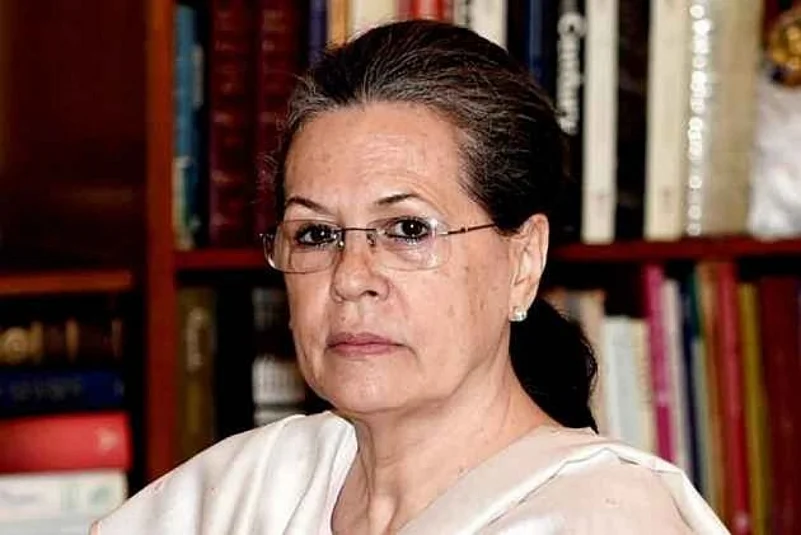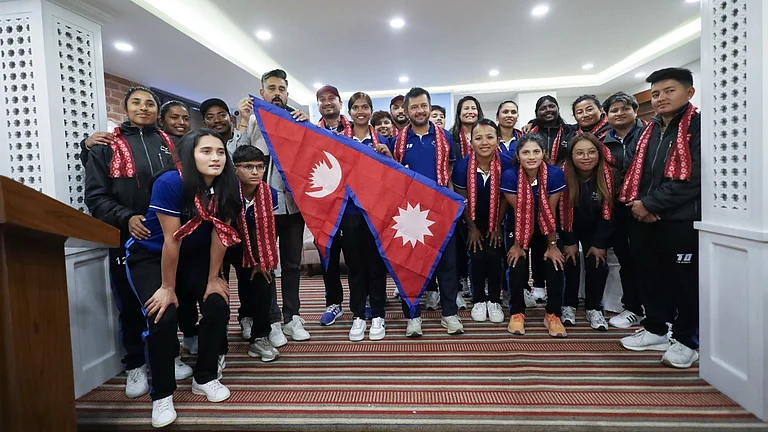Alarmingly high levels of air pollution and persistently increasing Covid spread in the national capital has forced interim Congress chief to move out of Delhi for a while. On Friday, Sonia Gandhi flew to Goa. Party sources say Sonia, who has a history of respiratory problems, including severe asthma, and was briefly hospitalized at Sir Gangaram Hospital in July-August this year, has been advised by her doctors to shift temporarily to a warmer place.
The interim Congress chief, has largely remained confined to her 10, Janpath residence since the first coronavirus-induced lockdown was enforced in March. Accompanied by her son Rahul Gandhi, the Congress chief, who left the national capital this afternoon, will be in Goa till the air quality in Delhi improves, sources said. Rahul had accompanied Sonia to Goa during her stay at a South Goa resort in January 2019 as well.
While Sonia’s health and her decision to move out of Delhi due to medical reasons are bound to create a flutter in political circles, the interim Congress chief has also sought to use the opportunity to send out an important message within her party that, arguably, would outweigh her temporary change of location. Sonia has constituted three internal panels of the party comprising senior leaders who have been mandated to “discuss issues and policies” related to economic affairs, foreign affairs and national security. The three panels, comprising five members each, will “keep her informed” of the deliberations, a statement issued by party general secretary (organisation), KC Venugopal, said.
Congress members and political observers are bound to read a larger political message in the composition of the three panels by Sonia. The internal committees constituted by Sonia mark the ‘rehabilitation’ of four of the 23 Congress veterans who had, in July, written to her a hugely controversial letter demanding wide ranging reforms within the party organisation.
While none of the letter writers have made it to the party’s committee on economic affairs which comprises Dr. Manmohan Singh, P. Chidambaram, Mallikarjun Kharge, Digvijaya Singh and Jairam Ramesh, the committees on foreign affairs and national security have two members each from among the letter’s 23 signatories.
Party veteran deputy leader in the Rajya Sabha, Anand Sharma along with Lok Sabha MP, Shashi Tharoor are among the letter writers who have been included in the foreign affairs panel which also has as its members, Dr Manmohan Singh, Salman Khurshid and Saptgiri Ulaka. Khurshid is a former Union external affairs minister while Sharma had served as minister of state for external affairs in UPA-I. Similarly, letter writers Ghulam Nabi Azad and Veerappa Moily have been included in the party committee on national security which also has Dr. Manmohan Singh, Vincent Pala and V. Vaithilingam as its members.
The fact that Manmohan Singh has been chosen to lead all three committees shows Sonia’s continuing trust in the former prime minister. However, it is the inclusion on the letter writers in the two panels that appears more significant as it signals Sonia’s willingness to keep them involved in the party’s internal processes.
It may be recalled that soon after the letter controversy and a fiery meeting of the Congress Working Committee that saw the signatories coming under fire from their peers; Sonia had revamped the AICC in September while also setting up a committee to “assist the Congress president in organizational and operational matters”. The AICC revamp was also seen as Sonia’s balancing act between the pro-reform leaders and party members who felt nothing wrong in maintaining status quo within the crisis-ridden party as she retained most of the naysayers while also assigning some of them, like Jitin Prasada, new tasks.
The special committee Sonia had constituted in September to assist her in organizational and operational matters had as its members, AK Antony, Ahmed Patel, Ambika Soni, Mukul Wasnik, KC Venugopal and Randeep Surjewala. Here too, Sonia had given representation to the letter writers by including Wasnik who was among the 23 signatories. It is unclear whether this committee has, so far, contributed in any manner to the way the Congress chief has been functioning since the August revolt. Similarly, how different the role of this special committee will be from the three newly constituted panels remains unknown. Though party insiders claim that the special committee did not have a remit that was specific to one subject unlike the three new panels that have a clear brief on the issues they are expected to deliberate upon, it is obvious that there will be an overlap of issues that these panels will take into consideration.
The wider message, thus, seems to not simply have a cogent party stand on various issues chalked out by veterans but to balance the egos and aspirations of some disenchanted partymen who have been getting restless over the deepening morass within the Congress, which has only been frustrated further by the party’s pathetic performance in the recent Bihar polls.


























